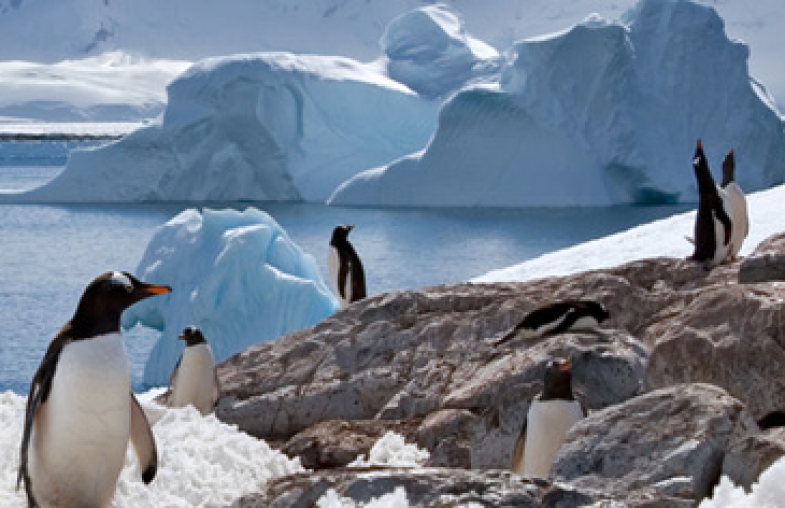Under a 1959 treaty, the Antarctic is regarded as a global commons for scientific research. Scientists from many nations live and work together to investigate the strange geology, atmospheric conditions, glaciers and other natural realities of those regions of the world. The 1959 treaty shrewdly dodges questions of “ownership” of the poles, providing instead for multi-nation stewardship of the region by scientists working together.
Recently, a group of scientific bodies decided to expand the scope of their stewardship of the North and South Poles to include data and information. They decided that information about the polar regions should be considered “public goods” available to all, and therefore established the Polar Information Commons (PIC). “Data are the common wealth of humanity,” says Adama Samassekou, the convener of the UN World Summit on the Information Society.
The PIC website, now launched but still in a fledgling state, is envisioned as “an open, virtual repository for vital scientific data and information” about the Arctic and Antarctica. It will provide “a shared, community-based cyber-infrastructure fostering innovation, improved scientific understanding, and encourage participation in research, education, planning, and management in the polar regions,” according to the PIC. This endeavor follows on the heels of the International Polar Year, an intensive period of international scientific research about the polar regions that, amusingly, did not last one year but from 2007 to 2009.
Scientific cooperation about the poles is entirely natural because it costs so much to maintain observation facilities there, yet the fruits of polar research are of great interest to the entire world. The circulatory patterns of air and water are quite distinctive at the poles, as are the Earth’s magnetic fields. Ancient glaciers hold lots of frozen samples of air and water that could yield secrets about the state of the Earth’s climate millennia ago and about contemporary climate dynamics.
Unfortunately, information and data about these things are often not readily available. They tend to be scattered across countless different institutions and websites. Even when the data is identifiable, they may be embodied in incompatible data formats and locked behind university restrictions and copyrights.
The Polar Information Commons (PIC) attempts to remedy this problem by establishing open data standards for scientific information related to the polar regions. This is something that Science Commons has dealt with extensively — most recently in collaboration with the Open Knowledge Foundation and others, as articulated in the Panton Principles, which set forth principles for considering a given body of data “open” and shareable.
In the case of the polar regions, the availability of open data has far-reaching practical implications. If data cannot be easily acquired or freely used, then scientists cannot understand or predict rapid changes in the ecosystem. They cannot provide timely, reliable information about (as the PIC website puts it) “wise use of resources, astute management of our environment, improved decision support, and effective international cooperation on natural resource and geopolitical issues.”
Scientists have their own needs, too. They need to ensure that data is used appropriately and ethically. For example, there should be proper attribution of the source of data, accurate descriptions of what the data contain, and community cooperation to assure that the data is reliable and high quality.
In classic commons fashion, the Polar Information Commons links obligation and responsibility with generosity: those who adhere to the ethics and norms of PIC community can participate in the circle of sharing. PIC members identify each other by applying a PIC badge to their websites and data. The badge asserts that “digital content is available in the Polar Information Commons with minimal restrictions and in adherence with community guidelines or norms of behavior for ethical data sharing.”
For the record, the science bodies who have organized PIC include the International Council of Science (ICSU), the World Meteorological Organization (WMO);, the International Arctic Science Council, IASC, the Scientific Committee for Antarctic Research, SCAR; the International Union of Geodesy and Geophysics, IUGG and the Royal Netherlands Academy of Science. Science Commons is a partner on the Polar Information Commons.




